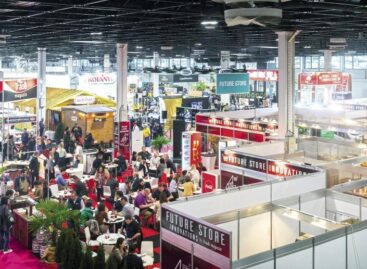Challenges of the HoReCa market do not disappear, they only change – We were learning together (Business Days 2024 Part 1)
Almost 1,100 “students” enrolled at the FMCG Open University, to learn from the best professors from different departments of the FMCG sector at the Trade Campus, in Hotel Pelion in Tapolca, on 23-27 September. In the first part of this article we give you an overview of the first 3 days.

This article is available for reading in Trade magazin 2024/11

Zsuzsanna Hermann, managing editor-in-chief of Trade magazin
welcomed the audience as rector
Zsuzsanna Hermann, CEO and editor-in-chief of Trade magazin and rector of the FMCG Open University pointed out in her opening speech: in the last 4 years companies have found many solutions to stay on their feet, to move forward and to organise things for the period ahead.

László Kovács
president
Guild of Hungarian Restaurateurs (MVI)
Monday is traditionally devoted to the HoReCa sector at the conference. László Kovács, president of the Guild of Hungarian Restaurateurs (MVI) gave a presentation, in which he underlined that the industry can slowly surpass 2019, when the hospitality sector had the highest number of businesses and the most employees – from 52,000 businesses at that time, 6,500 have closed by now. The hospitality sector now performs at the same level as back then, but with 10,000 fewer employees.
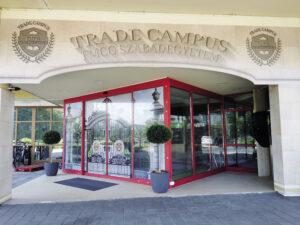
In just five days, nearly 1,100 “students” entered the Trade Campus of the FMCG Open University
Fewer confectionery shops
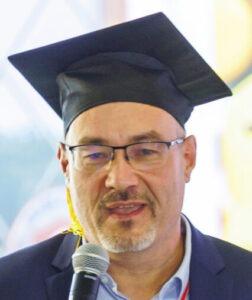
László Selmeczi
co-president
Hungarian Confectioners’ Craft Union
László Selmeczi, co-president of the Hungarian Confectioners’ Craft Union (MCI) underlined in his presentation: apart from interest representation, the main objectives of MCI are training and serving as a knowledge hub, making progress in artisan confectionery and organising workshops. Even if confectioners have been less affected by the crisis than the hospitality industry in general, sales revenues in the sector are declining – just like the number of confectioneries.

Anna Zoltai
president
KÖZSZÖV
Anna Zoltai, president of the National Association of Public Sector Catering Service Providers (KÖZSZÖV) told that the organisation currently has 450 members, and their main tasks are acquiring and sharing knowledge, information transfer, and the promotion of new methods and lobbying. Mass catering is the form of catering that has the lowest carbon footprint. Priority issues include sustainability and waste reduction, but they also find it important to fight over-regulation.
Audits and experiences

Dr. Imre Nemes
president
Nébih
Dr Imre Nemes, president of the National Food Chain Safety Office (Nébih) talked about the recent past, the present and the future of mass catering from a food safety perspective. Changes brought about by the outbreak of the Covid-19 pandemic have also entailed a renewal of the catering industry. In response to this, there is growing emphasis on online sales in Nébih inspections.

Réka Szöllősi
food policy analyst
élelmiszervilág.hu
Food policy analyst Réka Szöllősi gave an insight into the new challenges food service businesses need to face, such as the legal, market and social expectations regarding environmental sustainability. Cooking ingredients used in catering will also be affected by the consumer need for more sustainable eating, with a growing demand for using more traditional plant and alternative proteins. Software solutions can help to prevent waste generation and food waste in kitchens, and to plan more sustainable menus.
Too few quality guests
In the afternoon the programme began with a presentation by Ákos Bősze, HoReCa business development executive of METRO, who shared the results of a METRO survey done with 1,000 respondents.

The first round table discussion of the day was attended by restaurant owners and their suppliers
The first roundtable of the day brought together restaurant owners and their suppliers for a discussion.

Dr. Richárd Andrejszki
CEO and owner
Chef Market
Domestic consumption is low at 70% of the EU average, said Dr Richárd Andrejszki, CEO and owner of Chef Market. Although household savings have grown by 60% in 4 years, consumer confidence is low and consumption isn’t expected to pick up until the second quarter of 2025.
The industry is lacking quality tourists and those with smaller purchasing power are spending less.

Ákos Bősze
HoReCa business development executive
METRO
Ákos Bősze said the next year will be good for those restaurateurs who adapt their offering, services and their whole business model to the actual demand.
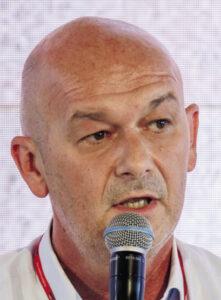
István Bruzsa
sales manager
Nestlé Professional
István Bruzsa, sales manager of Nestlé Professional expressed his view that there is growing demand for meat-free food and healthy eating.
As behind price, the second biggest problem for restaurateurs is the workforce shortage, the company is introducing products that are preservative-free, easy and quick to prepare, and offer stable good quality.
Restaurant owners should develop, instead of just waiting for an upturn

Károly Gerendai
owner
Costes group
Károly Gerendai, owner of the Costes group in Budapest sees different types of labour problems in fine dining than in other areas of hospitality. The company employs foreigners because they want to work a lot and aren’t careerists, while their young Hungarian employees would like to get into senior positions as quickly as possible, with as little effort as possible. There are too many restaurants at the moment and most of them aren’t engaged in development and marketing, instead they are just waiting for an upturn.

Rudolf Semsei
owner
VakVarjú restaurants and Budapest Party Service
Rudolf Semsei, the owner of VakVarjú restaurants, Budapest Party Service, and Semsei Gastronomy (the new umbrella brand for Dobay confectioneries) believes that a manager must first and foremost be familiar with the target group of their service. Going to a restaurant is still a luxury for many people, who are really careful about how much they spend. Despite rising prices, the Semsei Group is still delivering the experience and quality that guests are used to, at the cost of sacrificing some of the profit.
A name alone isn’t enough in fine dining
In the second panel discussion well-known figures of Hungarian restaurant gastronomy shared their experiences, successes and visions for the future.

István Pesti
co-owner
Platán Gourmet
István Pesti, co-owner of Platán Gourmet restaurant in Tata said they aren’t more expensive than similar restaurants in Europe, and they try to achieve the right price-quality ratio in all of their units. They have turned Platán into a brand with really hard work.

Robert Rosenstein
chef-owner
Rosenstein Restaurant
According to Róbert Rosenstein, chef and owner of Rosenstein Restaurant in Budapest: even with a name, a good reputation it isn’t enough just to wait for customers – every 3-6 months a place has to offer something special, something entertaining. They use these elements to build their brand.

Roy Zsidai
president
Hungarian Restaurant Association
Roy Zsidai, CEO of Zsidai Group and president of the Hungarian Restaurant Association called attention to the fact that the average price increase in the European hospitality industry was 40% if calculated in euro, and Hungarian restaurants haven’t become more expensive compared to Western Europe. New technological processes and trends are constantly emerging, from sous vide to molecular gastronomy and veganism, but these are integrated into everyday work and habits.
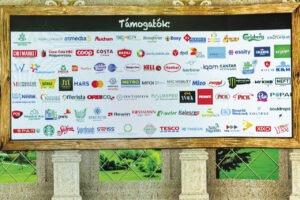
This year, nearly 100 companies and brands joined the sponsors of the event. Thank you for your support and for believing in the importance of the conference!
Back from the USA

Emilia Krug
moderator
Monday ended with a special treat: Emília Krug interviewed Roland Oláh, who came back from overseas to attend the conference.

Roland Oláh
chef
Roland moved to New York with his family in 2009 and Trade magazin followed his first two years of integration in a series of articles. The chef spoke very frankly about his feelings and experiences.
He is now taking out a big loan to open his own restaurant with his partner in New Haven, Connecticut. He believes in the importance of building a group of regular customers.
After the last “bell” of the day a METRO cocktail party followed until dinner, when the diverse evening programme began.

Monday evening started very excitingly with METRO’s traditional oyster & prosecco party, followed by Erox Martini’s performance at the garden party and ended with the obligatory prize draw
Click here to view more photos about Monday of the 2024 Business Days.
The event video is available to view here.
Related news
Christmas tree cake
🎧 Hallgasd a cikket: Lejátszás Szünet Folytatás Leállítás Nyelv: Auto…
Read more >Related news
II. Green Gastronomy – Marketing Communication Workshop organized by the MMSZ HoReCa and Green Section
🎧 Hallgasd a cikket: Lejátszás Szünet Folytatás Leállítás Nyelv: Auto…
Read more >Retail sales of organic products in Hungary increased by 13.9% – our country is the second fastest growing market in the European Union
🎧 Hallgasd a cikket: Lejátszás Szünet Folytatás Leállítás Nyelv: Auto…
Read more >

